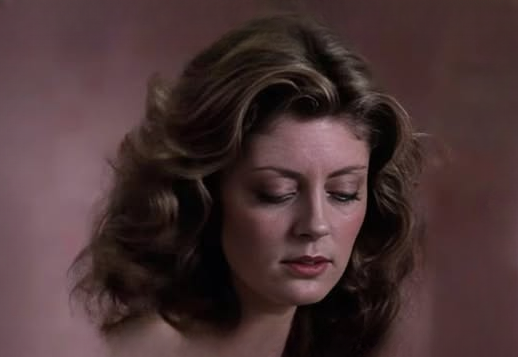Sally Field didn’t just portray Norma Rae — she walked through the pain, fear, and emotional battles that shaped one of the most unforgettable performances in American cinema. When the film premiered in 1979, viewers saw a determined textile worker standing on a factory table with a cardboard “UNION” sign held high. They saw strength, grit, and a woman demanding basic fairness. What they didn’t see were the hidden struggles: the cracked ribs, the constant insecurity, and a boyfriend who tried to shrink her dreams at every turn.
Norma Rae wasn’t simply a movie. It shed light on the rights so many workers now take for granted — minimum wage, workplace safety, medical care, weekends, protection for minors, and the basic right to dignity. Unions built the foundation of the modern workforce, and Field captured the essence of a woman refusing to be silenced. That role didn’t just change Hollywood’s opinion of her; it changed her opinion of herself.
Before this film, Hollywood didn’t take Sally Field seriously. To them, she was still “Gidget” or “The Flying Nun” — charming, cute, unthreatening. She knew she was capable of deeper work, but the industry boxed her in. So when the script for Norma Rae landed in her lap, she recognized it instantly: this was her chance to break free.
But her personal life tried to pull her back. Burt Reynolds — one of the era’s biggest celebrities and her boyfriend — hated the idea. He mocked her, belittled the part, and sneered, “So now you think you’re an actor?” At one point he even spat out, “No woman of mine is going to play a whore.” The words were meant to belittle her, to keep her small.
She took the role anyway.
And it wasn’t easy. The mill where they filmed wasn’t a polished Hollywood set — it was a real textile factory in Alabama, unbearably loud and physically draining. Field and Beau Bridges worked side-by-side with actual mill workers to learn their routines. The noise, the heat, the constant vibration — it all wore her down. Field later said two hours in that weaving room felt like an entire day anywhere else. By the end of production, everyone involved had gained a new respect for the people who labored there daily.
Field didn’t just observe — she immersed herself. She wandered the mill in faded clothes, listening, watching, absorbing the rhythm of workers who’d spent their entire lives there. Their exhaustion, their jokes, their small flashes of pride — all of it shaped a character who felt real, not performed.
That authenticity seeped into her life off-set. As filming continued, Field grew more assertive, more sure of herself — more like Norma. Reynolds didn’t like this newfound confidence. He appeared on the final day of shooting with a diamond ring and proposed. She refused. She thanked him, but the moment felt manipulative, like an attempt to pull her back into the smaller version of herself he preferred.
After filming ended, her confidence only grew. She felt something inside her shift — a refusal to apologize for wanting more. Reynolds responded with anger and disappointment. What began as a passionate romance had become a suffocating relationship ruled by his need to control everything from her wardrobe to her career choices. The more she blossomed, the more threatened he felt.
Meanwhile, the real woman behind Norma Rae — Crystal Lee Sutton — had endured a life even harder than the film portrayed. Born in 1940 in a segregated Southern mill town, she grew up firmly on the “worker” side of the social divide. She joined the mills young, lost her first husband at 20, raised three children on meager wages, and was pushed to the edge by a system that treated workers like replaceable parts.
In 1973, Sutton was fired from J.P. Stevens for her union activism. Before leaving, she scrawled “UNION” on a piece of cardboard, climbed onto a table, and turned slowly until the entire factory saw her. One by one, machines went silent. That moment became the heart of the film — and one of cinema’s most iconic scenes.
The movie softened some elements, which Sutton didn’t entirely approve of. She wished it had been more raw, more educational. She appreciated the emotional moments, but she wanted a harsher truth. She never made money from the film or the book it inspired. After a long battle with 20th Century-Fox, she eventually received a small settlement — just $52,000 before taxes. She paid bills and bought a used Trans-Am for her supportive husband. Her life stayed simple, but her bravery was immense.
Field and Sutton met once — in California in 1980. Sutton remembered talking about their children, laughing, feeling understood. Field told her to reach out anytime. It was a brief but meaningful connection between two women linked by a story of dignity and courage.
When Norma Rae premiered at Cannes, Field cried as she watched the audience react. Every doubt — that she wasn’t good enough, that she couldn’t lead a film, that she’d always be underestimated — melted away. But Reynolds refused to go with her, dismissing the festival as pointless. When she asked him to accompany her to the Oscars, he snapped, “You don’t actually think you’re going to win, do you?” She attended with David Steinberg and his wife instead, and they made it a celebration — champagne in a limousine, laughter, joy — everything Reynolds withheld.
And then she won.
Best Actress. Hollywood finally acknowledged the talent she had fought years to prove.
Today, Norma Rae still stands as one of the most significant labor films ever made. Sally Field’s performance — raw, furious, vulnerable, honest — remains a powerhouse. But behind that triumph was a woman waging a real battle in her own life. Like Norma Rae herself, Sally Field didn’t rise because it was easy. She rose because she refused to stay small.
